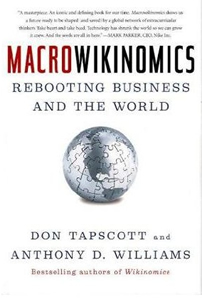Are we sure this is a time of major, disruptive, history-changing technological innovation? Professor Tyler Cowen in his book The Great Stagnation remembers his readers how the period from 1880 to 1940 brought us electricity, electric lights, powerful motors, automobiles, airplanes, household appliances, the telephone, indoor plumbing, pharmaceuticals, mass production, the typewriter, the tape recorder, the phonograph, radio and television. If you look at a longer timeframe and include the Industrial Revolution, the changes are even more impressive – essentially a story of combining advanced machines with powerful fossil fuels which brought unprecedented change to humanity.
Cowen:
Today, in contrast, apart from the seemingly magical internet, life in broad material terms isn’t so different from what is was in 1953. We still drive cars, use refrigerators, and turn on the light switch, even if dimmers are more common these days.
But what about the internet? That surely must be the big innovation of our day and age?
 Professor Tyler Cowen is not dismissive of the internet. “Unlike electricity, the internet hasn’t changed everyone’s life, but it has changed a lot of lives, and its influence will be even stronger for the next generation.”
Professor Tyler Cowen is not dismissive of the internet. “Unlike electricity, the internet hasn’t changed everyone’s life, but it has changed a lot of lives, and its influence will be even stronger for the next generation.”
What is special about the internet, for an economist, is that so many of its products are free. People can tweet, read blogs, browse on eBay, watch music videos, experience adventures in some gaming universe, attend a concert in a virtual environment, all for free.
Cowen: “… the new low-hanging fruit is in our minds and in our laptops and not so much in the revenue-generating sector of the economy.”
“Innovation hasn’t ceased, but it has taken new forms and it has come in areas we did not predict very well. A lot of the internet is a free space for intellectual and emotional invention, a kind of open-ended canvas for enriching our interior lives.”
“Basically, we have a collective historical memory that technological progress brings a big and predictable stream of revenue growth across most of the economy.”
Cowen gives a similar argument about the employment. While in the past breakthrough innovations resulted in lots of new jobs, the now famous internet companies such as Facebook, Twitter and even Google can’t be compared to the automobile behemoths of Detroit.
In a sense, we’re getting away from materialism, but that really hurts the economy and the social institutions funded by that economy. However, not everything is ugly:
- The interest in science and engineering in India and China, their growing importance as markets for innovative products and services.
- The internet facilitates scientific learning and communication.
- More interest in a more efficient education policy.
Cowen also has a recommendation: raise the social status of scientists while at the same time being realistic as far as technological progress is concerned: we’re living in the new normal, or so it seems because the rate of technological progress never has been easily predictable.
Change
What’s my take on all this? The internet is putting into question more than one aspect of our societies and economies. The most obvious changes concern education and work. In both cases the relevance of factory-like institutions is diminishing rapidly, in favor of one-person enterprises working on a collaborative basis.
There is more individualism in this sense that people will choose their own curricula, taking into account their interests and particular situation. Sometimes it will be necessary to have a certificate acknowledging a certain expertise, often the value of training or education will be evaluated by the student herself when she tries to apply what she has learned.
The individual will participate in shifting collaborations, project-based. Some of these collaborations will be based on non-monetary reciprocity (for instance in group learning), others will be market-oriented.
Innovation will happen in various flavors, but as the boundaries of the enterprise will become deconstructed, open innovation will gain traction. Sometimes this innovation will be like in open source, but often various degrees of compensation will be sought: using Creative Commons or more traditional licenses, copyrights and patents.
These ideas are explored by Don Tapscott and Anthony D. Williams in their books and presentations about Wikinomics. They analyze how the market and also non-market external collaboration are often more effective that in-company solutions. Those companies which are dominated by bureaucracies wanting to keep each and every process inside the company walls, will perish while those which reach out to external collaboration (market based or not), make a much better chance to be successful (also read my previous post about Don Tapscott at the LIFT conference, commenting on the Arab uprisings).
The more difficult aspects of Cowen’s thinking seem to be almost spiritual. Even though he points out the practical problems related to a less materialistic society (who will pay for the old, the sick, the needy, for public services), he also seems to appreciate this evolution.
Related – Seth Godin says: “What’s actually happening is this: we’re realizing that the industrial revolution is fading. The 80 year long run that brought ever-increasing productivity (and along with it, well-paying jobs for an ever-expanding middle class) is ending.”



I love the idea about wizard rock music scene, isn’t it amazing how they combine music and technology. Great video LOL DUmbledore fell down